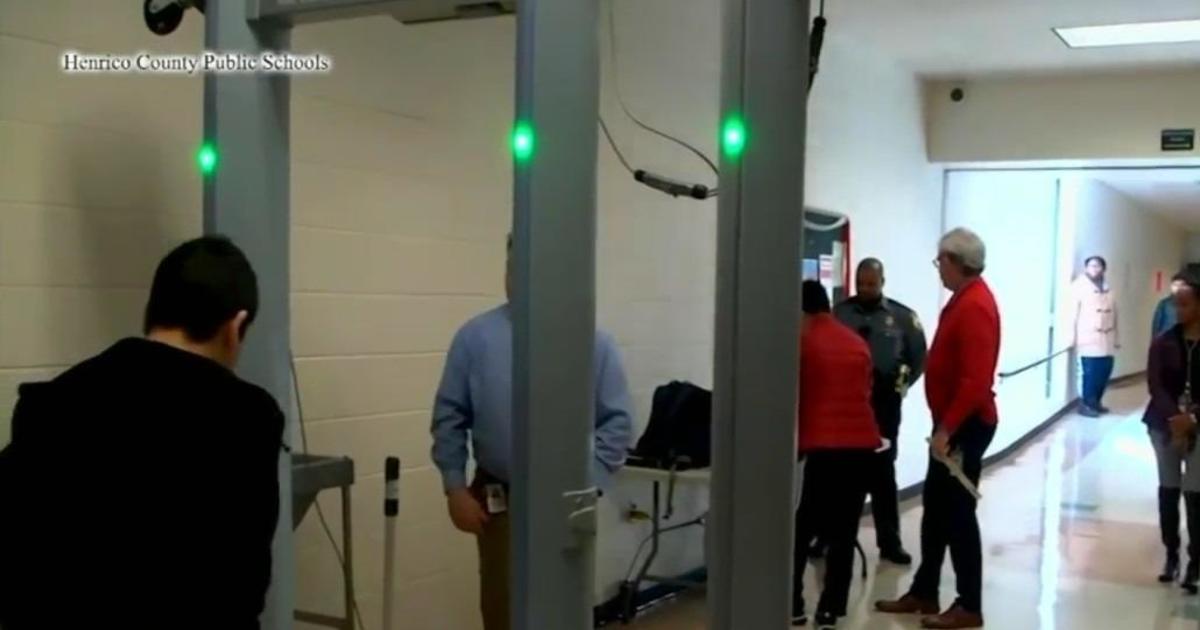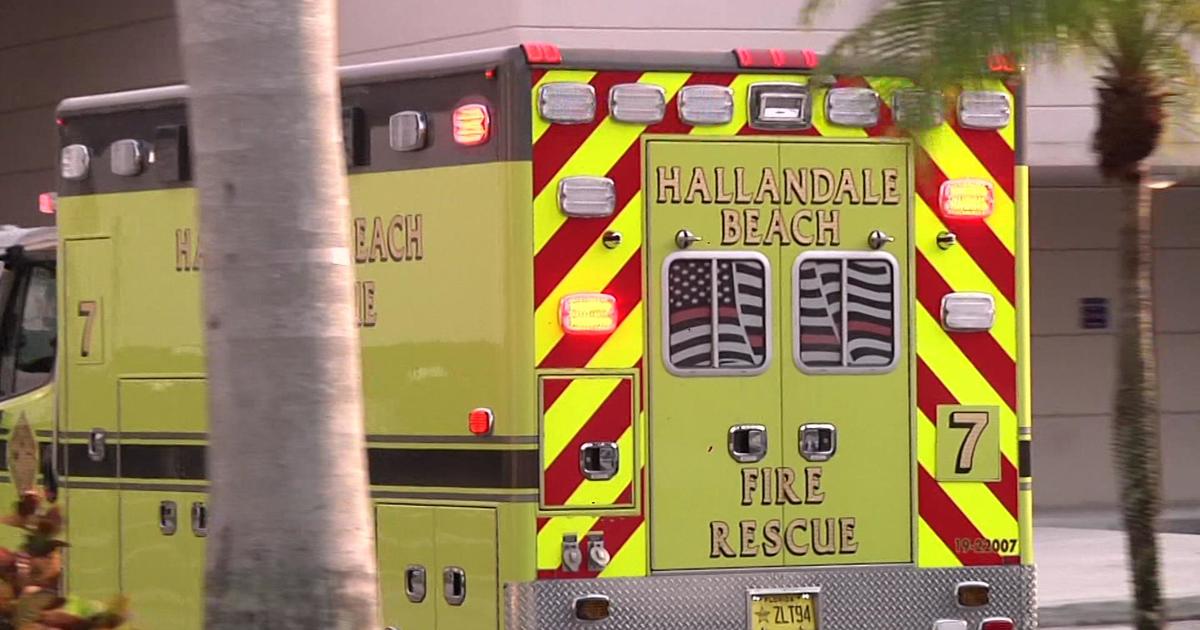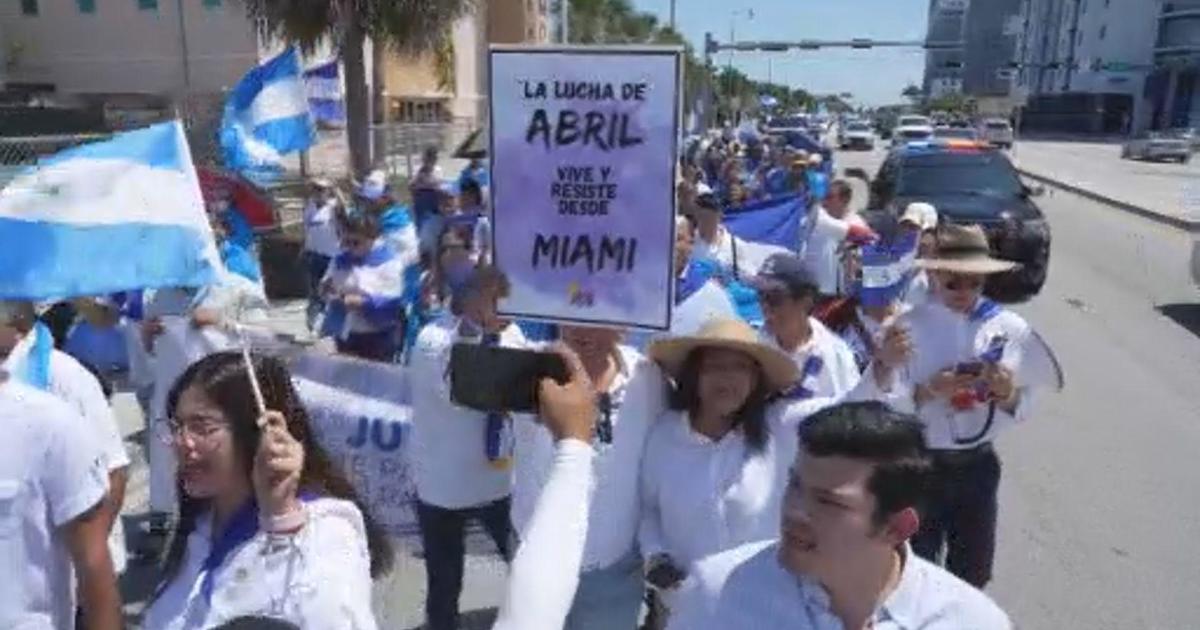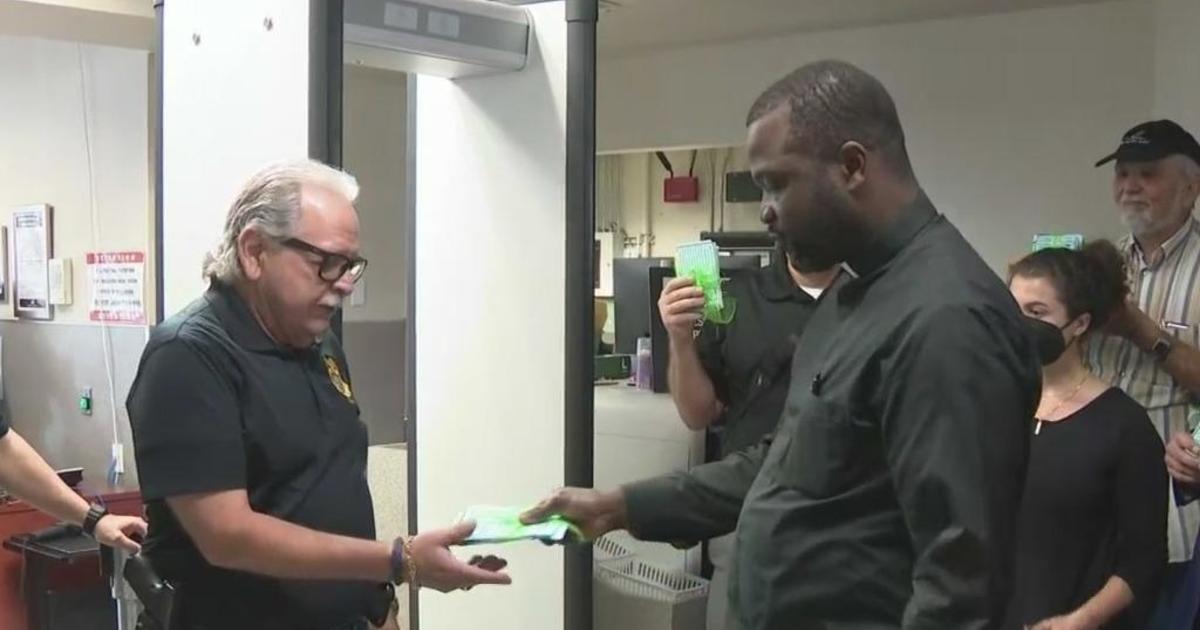Local Superintendents React To Report From President Trump's Commission On School Safety
Follow CBSMIAMI.COM: Facebook | Twitter
FORT LAUDERDALE (CBSMiami) – A recommendation by President Trump's Federal Commission on School Safety to arm teachers and school staff is a non-starter with Schools Superintendents in Broward and Miami-Dade counties.
These suggestions come from the commission's final report detailing best practices and policy recommendations for improving safety at schools across the country.
"That isn't something that we would endorse or encourage," said Broward Superintendent Robert Runcie.
"Our teachers quite frankly reject the notion that above and beyond their responsibilities of inspiring and teaching that they should carry weapons and be responsible for the ultimate protection of children," said Miami-Dade Superintendent Alberto Carvalho.
But this is the second time in a week that a high-profile commission studying the Parkland massacre issued such a recommendation.
Last week, the Marjory Stoneman Douglas Public Safety Commission overwhelmingly recommended arming selected, volunteer teachers who pass background checks and rigorous training.
That commission said confessed shooter Nikolas Cruz was able to reload his weapon numerous times and that if an armed teacher had been in the building they might have been able to stop Cruz.
"It's critical to have armed personnel available at a moment's notice," said President Trump.
South Florida school district leaders say the proper people to carry guns on school campuses are trained officers. Broward School Superintendent Robert Runcie said teachers deserve higher pay not the responsibility of carrying guns.
"I would rather think about arming teachers with funding and salary that's appropriate for the work they're doing," Runcie said.
In addition to arming school staff, President Trump's Commission looked at raising the age for gun purchases.
They found that most school shooters get weapons from friends and family so "...modifying the minimum age of firearm purchase is unlikely to be an effective method for preventing or reducing school shootings."
The Commission did recommend an expansion of red flag laws that would "...temporarily restrict firearms access by individuals found to be a danger to themselves or others." Florida instituted a red flag law after the Parkland shooting.
School leaders in South Florida say they were disappointed that President Trump's school safety commission did not take a deeper dive into the gun issue and how it has impacted school shootings.
"It's an inconvenient truth in America that young people and those sometimes quite frankly have mental impairments are having easy access to firearms and that needs to be looked at," Carvalho said.
During Tuesday's meeting in Washington the Commission spoke about the ban of bump stocks to turn a semi-automatic weapon into a fully automatic weapon. That ban will likely begin Friday.
Some of the Parkland parents were dismayed by the report's lack of research and evaluation of the gun issue. They said it doesn't deal at all with background checks.
Fred Guttenberg's daughter Jamie was murdered at Stoneman Douglas. He took issue with that portion of the report.
"You can't remove guns from gun violence and this plan attempted to do that," Guttenberg said.
The report also focused on many other issues, including dealing with student discipline. That's been an issue raised in Broward County as details of the troubled life and school record of confessed shooter Nikolas Cruz emerged.
Cruz had numerous behavioral and discipline problems at school. Critics have said that the Broward School district was too lenient in dealing with students like Cruz because of guidelines instituted by President Obama.
The report says programs to keep kids out of legal trouble "...creates a chilling effect on classroom teachers' and administrators' use of discipline..." and "…may have paradoxically contributed to making schools less safe."
Not so, says Broward Schools Superintendent Robert Runcie.
"It's being mislabeled," Runcie said. "There's a lot of misinformation out there."
Runcie says the Promise program is Broward is meant to intervene in certain cases to positively impact student behavior.
"Promise is about interventions for kids who have committed minor misdemeanor related offense not serious felonies and crimes," he said.
Runcie said zero tolerance policies don't provide the type of mental health and school wellness supports that the Preisdent's report advocates. He believes the Promise program — and others like it — actually provide more consequences for students.
"Instead of just being out on the street you actually had to go to a program where you would get interventions you would get services. There would be accountability." Runcie said.
Miami-Dade Schools Superintendent Alberto Carvalho says Miami-Dade does not have a program similar to the Promise program. But he believes school districts need flexibility in dealing with discipline.
"I think we ought to approach student discipline in a fair and balanced way that looks at children for who they are," Carvalho said. "Assigning life long consequences with a record in the criminal system that will follow a child for the rest of their lives, negating them the possibility of going to law school or entering the armed forces may go too far."
Both superintendents praised Commission recommendations on increasing awareness of mental health issues in young people. Both Runcie and Carvalho agree that a focus on that issue is critical and they said they desperately needs funds to pay for those programs on early identification of mental health problems and increasing social-emotional learning.
"What's lacking, quite frankly, is a clear mandate to the federal government to pay for it," Carvalho said.



